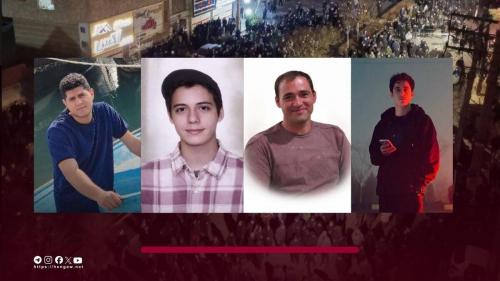03 March 2017 :
PREFACE
by Boni Yayi
President of the Republic of Benin
On 18 July 2014, the non-governmental organisation “Hands off Cain” conferred upon me the Award for the Abolitionist of the Year 2014.
It is an award that reaches well beyond my person, because it is a recognition that honours the entire People of Benin, for the numerous efforts that allowed us to courageously pass, in the course of the last five years, from the status of abolitionist de facto to that of abolitionist de jure.
Considering capital punishment as a cruel, inhuman and degrading punishment, my Government, faithful to the tradition established by its predecessors who suspended the application of the death penalty in 1987, demonstrates its will to scrupulously respect the spirit and the letter of the Constitution of Benin which, under Article 15, states that “each individual has the right to life, liberty, security and the integrity of their person.”
Benin is happy and proud to belong to this category of Nations in the world that practice and uphold daily the respect of the right to life.
I render homage to the Parliament of my Country for carrying this initiative forward in abolishing the death penalty in Benin, authorising the ratification of the Second Optional Protocol to the International Covenant on Civil and Political Rights. “I do not wish the death of the sinner but their conversion,” the Holy Scriptures state.
Meditating on the profundity of these words, I came to the conviction that the death penalty is one of many questions relative to governance.
It was for this reason, that starting with my election to the helm of Benin in 2006, that I put the abolition of the death penalty among the fore of important reforms to be carried in my Country.
After my re-election in 2011, the important steps realised on the road to abolition in the course of my first five years in office allowed me to rapidly conclude the process in 2012.
For the Government that I head, it is of the utmost importance to leave a heritage to the young and to future generations of values, points of reference and clear results among which is the outstanding presence of the respect for the sacred nature of human life itself.
Let there be no doubt that the questions surrounding the abolition of the death penalty in a Country are serious and regard various levels of society.
Making the choice to abolish the death penalty presupposes that an adequate response has been found to the most essential question: if courts are no longer authorised to emit death sentences, what is to be done with dangerous criminals?
The answer to this question is not simple. It involves for many Countries, particularly developing Nations like my own, serious challenges for criminal justice authorities.
The killer, without a doubt, threatens social order; in the society in which they committed their crime they arouse fear which presumably only vanishes when they themselves vanish as a result of a penalty imposed upon them by the collective which has been victim to their wrongdoing.
Regardless, history teaches us that the cruellest, most infamous and most frightening punishments have been unable to rid society of the crimes against which they have been applied.
Without a doubt, this is explained by the fact that, in the calculations of the killer, in effect, there is little or no space for the fear of punishment. For the killer, the punishment does not enter into the sphere of certainty but only of possibility;
consequentially, with a little luck, intelligence or some proper strategy, it is possible to escape punishment. The conclusion reached by the criminal is, thus, quite simple and can be summed up in the following question: Why fear a severe punishment, penalty that can only regard others?
From the answer to this question comes the clear inefficiency, proved generation after generation, of the dissuasive power of the death penalty.
In fact, no study thus far has been able to demonstrate that the application of the death penalty reduces the crime rate in any Country.
Evil is a component of human nature and no law has, to date, been able to impede the carrying out of criminal acts.
It would seem more useful to give a second chance to those who commit crimes, who, in reality, arrive at such acts and social status because they themselves have been victim to one or more aspects of the society in which they live.
It is necessary to find ways to reconcile the evolution of law towards a greater humanity with the application of penalties that help to correct and re-orient those who are lost or relegated to the margins of society.
Our institutions must operate in such a way that our vigilance becomes the preventative factor rather than the rigour of our laws.
It is comforting to note that the understanding of the futility of the death penalty is shared by an ever-growing majority of people throughout the world.
To date, 161 Nations, that is to say two-thirds of the Nations of this planet, have abolished the death penalty, either by law or in practice.
Even though it remains in 37 Nations, given the progress made by the abolitionist movement during the last ten years, it is reasonable to hope that, despite our differences, regardless of our cultures, our nationalities and our races, thanks to our combined strengths, within a few years the death penalty will be no more than a recollection in the collective memory of humanity.
In Benin, we welcome the Award of Abolitionist of the Year as recognition of our efforts alongside other Nations in the struggle for the abolition of the death penalty, but also as an appeal to continue to go forward in contributing a new vigour to the positive trend of the abolitionist movement.
I wish to assure the world that my Country is ready to fully play out its role in this battle.








